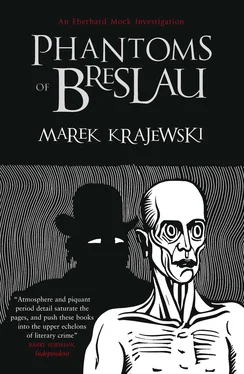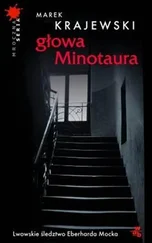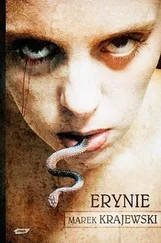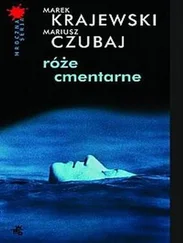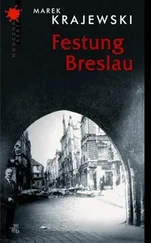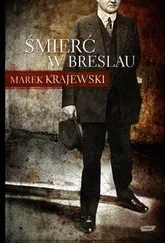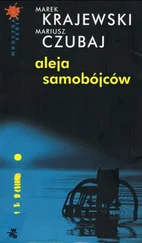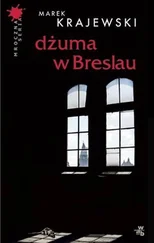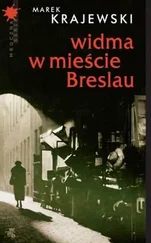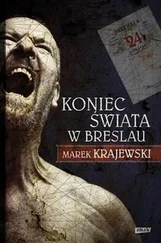Marek Krajewski - Phantoms of Breslau
Здесь есть возможность читать онлайн «Marek Krajewski - Phantoms of Breslau» весь текст электронной книги совершенно бесплатно (целиком полную версию без сокращений). В некоторых случаях можно слушать аудио, скачать через торрент в формате fb2 и присутствует краткое содержание. Жанр: Полицейский детектив, на английском языке. Описание произведения, (предисловие) а так же отзывы посетителей доступны на портале библиотеки ЛибКат.
- Название:Phantoms of Breslau
- Автор:
- Жанр:
- Год:неизвестен
- ISBN:нет данных
- Рейтинг книги:3 / 5. Голосов: 1
-
Избранное:Добавить в избранное
- Отзывы:
-
Ваша оценка:
- 60
- 1
- 2
- 3
- 4
- 5
Phantoms of Breslau: краткое содержание, описание и аннотация
Предлагаем к чтению аннотацию, описание, краткое содержание или предисловие (зависит от того, что написал сам автор книги «Phantoms of Breslau»). Если вы не нашли необходимую информацию о книге — напишите в комментариях, мы постараемся отыскать её.
Phantoms of Breslau — читать онлайн бесплатно полную книгу (весь текст) целиком
Ниже представлен текст книги, разбитый по страницам. Система сохранения места последней прочитанной страницы, позволяет с удобством читать онлайн бесплатно книгу «Phantoms of Breslau», без необходимости каждый раз заново искать на чём Вы остановились. Поставьте закладку, и сможете в любой момент перейти на страницу, на которой закончили чтение.
Интервал:
Закладка:
“Mock, why have you written this absurd statement to the press? And why are you showing it to me?”
“Commissioner, sir, I am …” — Mock pondered his next words, as if speaking a language he was not in full command of — “a loyal subordinate. I know that if … if a newspaper were to print this, then I’m finished. Yes, finished. Dismissed from the police force. Without a job. That’s why I’m telling you about it.”
“And what?” In a shaft of sunlight which cut through the clouds of smoke, tiny droplets of spittle could be clearly seen settling on Muhlhaus’ beard. “You want me to save you from being thrown out?”
“I don’t know what I want,” Mock whispered, afraid he might close his eyes at any moment and be transported to the land of his childhood: to the Heuscheuergebirge, covered in dry leaves and warmed by the autumn sun, where he used to go with his father. “I’m like a soldier, informing my commanding officer of my resignation.”
“You’re one of the men I want for my new murder commission.” The bowl of Muhlhaus’ pipe gurgled. “I don’t want idiots who trample over evidence left at crime scenes, whose only assets are exemplary military service. I don’t want former informers who work for both sides. And I don’t want to lose you because of this absurd statement of yours which will make a laughing stock of the entire Police Praesidium. You’ve been holding back from sleep for several days now. If you’ve gone clean out of your mind, as both this statement and your behaviour seem to indicate, then you won’t be much use to me anyway. So you have to tell me everything. If you remain silent, I’ll take you for a lunatic and leave. If you talk nonsense, I’ll also leave.”
“Commissioner, sir,” Mock said, placing the phial of smelling salts on the table. “Please hold this under my nose if I start to fall asleep. I’m glad you don’t mind the stench of ammonia. Hey, you,” he called to the boy. “What time do you open? We’ve enough time, Commissioner,” he said when he heard the answer. “And you, boy, I want you out of my sight. Come back just before opening time.”
The boy ran out, happy to relieve his nostrils of the unpleasant smell. Mock rested his elbows on the table, slipped on his world-brightening pince-nez, and turned his face towards the sunlight pouring through the lace curtains on the front window. He rubbed his eyes, hissed in pain and then slapped them with open palms. Fireworks exploded beneath his eyelids. The corners of his eyes stung. His cigarette burned down in the ashtray.
“I’m fine now,” Mock said, taking a few breaths. “I won’t fall asleep. I can tell you now. As you might have gathered, it’s all to do with that investigation of ours, the Four Sailors case …”
BRESLAU, MONDAY, SEPTEMBER 1ST, 1919
HALF PAST SEVEN IN THE MORNING
Mock opened the heavy two-winged door and found himself in a flagstoned hallway in near darkness. He made his way forward slowly, without bothering to muffle the ringing of his spurs. Suddenly he came across a velvet curtain, and drawing it aside he entered another hallway, a waiting room with doors leading to several rooms. One of them was open but another curtain hung from its lintel, which made Mock hesitate for a moment. In one of the waiting-room walls, instead of a door, there was a window that gave, so Mock assumed, on to the ventilation pit. On its outside sill stood a paraffin lamp whose feeble glow barely penetrated the dusty windowpane. In this meagre twilight, Mock could make out several figures sitting in the waiting room. He did not, however, manage to get a closer look at them since his attention was drawn to the curtain hanging at the door of the room. It moved abruptly, and from behind it came a sigh. Mock made towards it but a tall man in a top hat barred his way. When Mock tried to move him aside, the man took off his headwear. In the pale semi-darkness, knots of scar tissue were clearly visible as they refracted the light. Instead of eyes, the man had a tangle of criss-crossing and interweaving scars.
Mock looked at their thick lines, at the dark patches that stood out on the wall next to his bed. He rubbed his eyes and turned away from the wall. The curtain isolating his bed alcove was bathed in sunlight.
From beyond the curtain came the sound of his father’s bustling. Mugs clattered, stove lids rattled, fire crackled and bread crunched beneath the weight of a knife. Mock reached for the metal jug beside his bed and sat up so as not to spill the water as he drank. He tilted the jug and liquid poured into his dried-up orifice of a mouth and over his rough, swollen tongue. It flowed in a broad stream and soaked his nightshirt, which was tied at the neck with stiffly starched straps. Rusty rings squeaked along the metal rail, the curtain parted and let a bright band of light into the stuffy alcove.
“You look like the seven plagues of Egypt,” said a short, stocky man holding a chipped mug in his gnarled fingers.
His facial features, which had absorbed the fumes of boiling shoe-glue, his brown liver spots and stern, grey eyes had combined to make Willibald Mock the bogeyman of local children. Eberhard Mock was not afraid of his father, as he had long since ceased to be a child. He was thirty-six years old and had a piece of metal in his thigh, as well as rheumatism, bad memories, and a weakness for alcohol and red-headed women. Now, above all else, he had a hangover. He stowed the jug under his bed, sidestepped his father and entered the sun-drenched room which served as both kitchen and his father’s bedroom. Uncle Eduard, who had died several months earlier, had once jointed beef carcasses here, flattened tender pieces of pork and pounded sticky chunks of liver. It was here that he had stuffed intestines smelling of Riesengebirge bonfires, and then hung rings of sausages above the stove where Willibald Mock had set milk to warm for his hungover son.
“Don’t drink so much,” his father said as he left the alcove. Grey whiskers bristled above his thin lips. “I never neglected my work. I always sat down to my shoes at the same time each day. My hammering in the workshop was like the cuckoo of a clock.”
“I’ll never match up to you, Father,” said Mock a touch too loudly as he went over to the basin by the window and splashed his face with water. He opened the window and hung a razor-sharpening strap onto a nail. “Besides, I’m on duty a little later today.”
“What kind of duty is that?” Willibald Mock struggled with small bottles of medicine. “Booking whores and pimps. You should be out on the beat helping people.”
“Let it be, old man,” Mock said as he sharpened his razor and rubbed soap onto the thick bristles of a shaving brush. “You, on the other hand, spent your life breathing in the odour of other people’s smelly feet.”
“What did you say?” His father cracked eggs into a cast-iron frying pan. “What did you say? You’re talking quietly on purpose because I’m deaf.”
“Nothing. I’m talking to myself.” Mock scraped the foam off his cheeks with the razor.
His father sat down at the table, breathing heavily. He stood the frying pan with its yellowy mush on the bread board from which he had first carefully removed all crumbs. Then he spread slices of bread with dripping and arranged them one on top of the other to form a rectangular stack, evening out the edges so that none protruded at the sides. Eberhard Mock wiped the foam from his face, rubbed his cheeks and chin with a shaving stick, pulled on his vest and sat down at the table.
“How can you knock back so much?” With a pair of scissors, his father snipped the stalks of an onion growing in a flower pot and sprinkled them over the scrambled eggs. He separated the slices of bread he had already stuck together and scattered a tiny amount of chives between each one, and then stuck them back together and wrapped them in greased parchment. “I never got so drunk. But you do almost every day. Remember to bring the paper home — I’ll use it again tomorrow.”
Читать дальшеИнтервал:
Закладка:
Похожие книги на «Phantoms of Breslau»
Представляем Вашему вниманию похожие книги на «Phantoms of Breslau» списком для выбора. Мы отобрали схожую по названию и смыслу литературу в надежде предоставить читателям больше вариантов отыскать новые, интересные, ещё непрочитанные произведения.
Обсуждение, отзывы о книге «Phantoms of Breslau» и просто собственные мнения читателей. Оставьте ваши комментарии, напишите, что Вы думаете о произведении, его смысле или главных героях. Укажите что конкретно понравилось, а что нет, и почему Вы так считаете.
